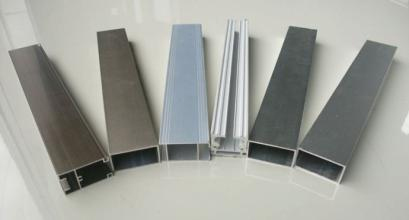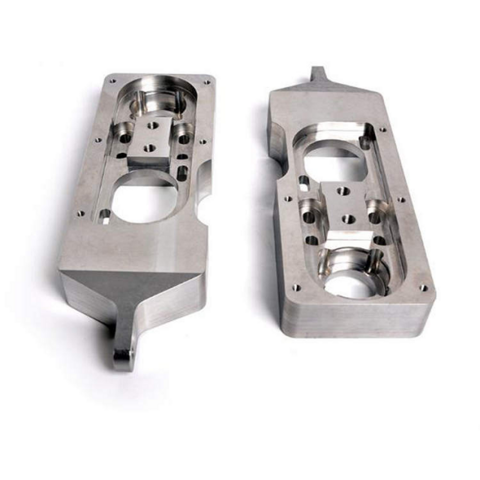Getting The Alcast Company To Work
Getting The Alcast Company To Work
Blog Article
The Greatest Guide To Alcast Company
Table of ContentsThe Of Alcast CompanyThe Ultimate Guide To Alcast CompanyThe Facts About Alcast Company RevealedThe Only Guide to Alcast CompanyThe Definitive Guide for Alcast CompanyAlcast Company - An Overview
The refined distinction lies in the chemical material. Chemical Comparison of Cast Aluminum Alloys Silicon advertises castability by minimizing the alloy's melting temperature and improving fluidity throughout casting. It plays a critical role in enabling intricate molds to be filled accurately. Furthermore, silicon adds to the alloy's toughness and use resistance, making it useful in applications where resilience is essential, such as automotive parts and engine elements.It also boosts the machinability of the alloy, making it less complicated to refine right into ended up products. By doing this, iron adds to the overall workability of aluminum alloys. Copper raises electric conductivity, making it beneficial in electrical applications. It additionally boosts deterioration resistance and contributes to the alloy's general stamina.
Manganese contributes to the toughness of aluminum alloys and boosts workability (Aluminum Castings). It is typically utilized in functioned aluminum items like sheets, extrusions, and accounts. The presence of manganese help in the alloy's formability and resistance to splitting during manufacture procedures. Magnesium is a lightweight component that offers toughness and effect resistance to aluminum alloys.
Some Known Factual Statements About Alcast Company
It allows the manufacturing of light-weight elements with outstanding mechanical properties. Zinc boosts the castability of light weight aluminum alloys and helps control the solidification process throughout casting. It boosts the alloy's toughness and solidity. It is frequently found in applications where complex shapes and great details are required, such as attractive castings and particular automotive parts.

The main thermal conductivity, tensile toughness, yield stamina, and prolongation differ. Amongst the above alloys, A356 has the highest thermal conductivity, and A380 and ADC12 have the lowest.
Excitement About Alcast Company

In precision spreading, 6063 is appropriate for applications where intricate geometries and top quality surface finishes are extremely important. Examples consist of telecommunication enclosures, where the alloy's exceptional formability enables streamlined and aesthetically pleasing styles while preserving structural stability. In a similar way, in the Illumination Solutions sector, precision-cast 6063 parts create classy and reliable illumination components that require elaborate forms and excellent thermal efficiency.
It brings about a finer surface coating and far better deterioration resistance in A360. Moreover, the A360 shows premium prolongation, making it ideal for complicated and thin-walled components. In precision spreading applications, A360 is fit for sectors such as Customer Electronics, Telecommunication, and Power Tools. Its enhanced fluidness enables detailed, high-precision components like smart device coverings and interaction device real estates.
All About Alcast Company
Its unique residential properties make A360 a useful option for accuracy casting in these industries, improving product durability and high quality. Foundry. Aluminum alloy 380, or A380, is an extensively made use of spreading alloy with numerous distinct characteristics.
In accuracy spreading, light weight aluminum 413 beams in the Consumer Electronics and Power Devices sectors. This alloy's remarkable rust resistance makes it an outstanding selection for exterior applications, making sure long-lasting, resilient products in the pointed out industries.
Some Known Details About Alcast Company
Once you have actually determined that the aluminum die casting procedure is suitable for your task, an important following step is deciding on one of the most ideal alloy. The aluminum alloy you choose will considerably impact both the spreading process and the residential properties of the last product. Because of this, you need to make your decision carefully and take an informed technique.
Establishing the most ideal light weight aluminum alloy for your application will certainly suggest considering a vast variety of qualities. The first group addresses alloy qualities that affect the production process.
Alcast Company Fundamentals Explained
The alloy you choose for die spreading directly impacts a number of aspects of the spreading process, like exactly how simple the alloy is to work with and if it is vulnerable to casting problems. Warm splitting, also recognized as solidification breaking, is a normal die casting flaw for aluminum alloys that can lead to interior or surface-level splits or splits.
Certain light weight aluminum alloys are extra prone to warm splitting than others, and your choice ought to consider this. Another usual defect discovered in the die casting of light weight aluminum is pass away soldering, which is when the cast stays with the die wall surfaces and makes ejection difficult. It can damage both the actors and the die, so you must look for alloys with high anti-soldering properties.
Rust resistance, which is already a remarkable attribute of light weight aluminum, can differ substantially from alloy to alloy and is an important characteristic to think about relying on the ecological problems your item will certainly be exposed to (aluminum metal casting). Put on resistance is an additional residential property generally looked for in light weight aluminum products and can differentiate some alloys
Report this page